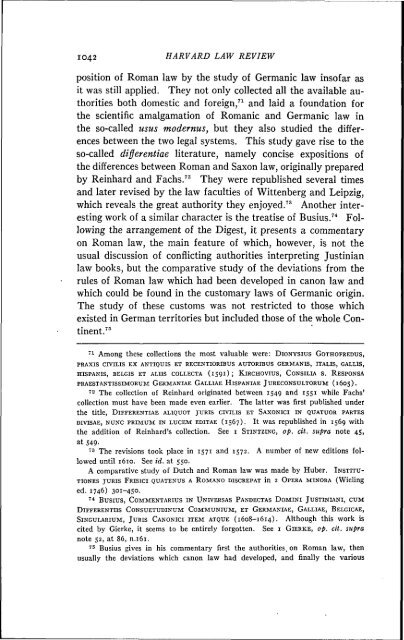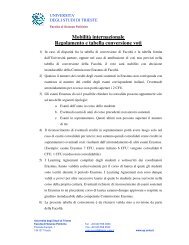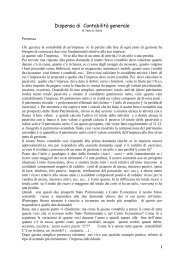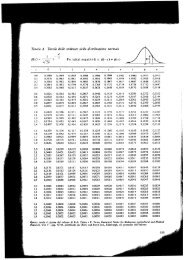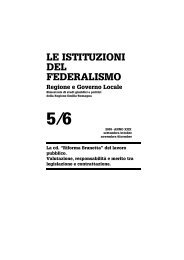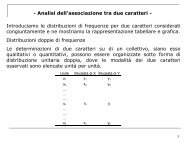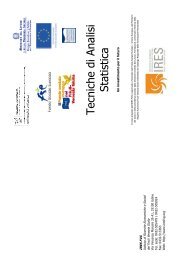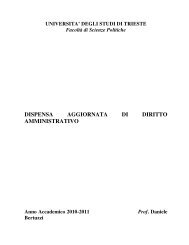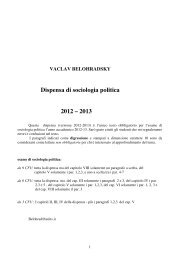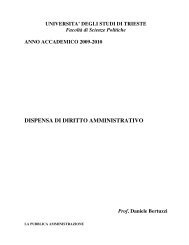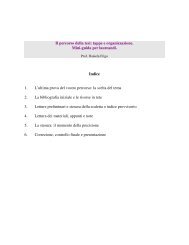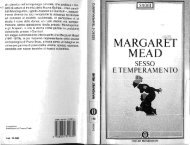THE HISTORY OF COMPARATIVE LAW * ^COMPARATIVE law, as ...
THE HISTORY OF COMPARATIVE LAW * ^COMPARATIVE law, as ...
THE HISTORY OF COMPARATIVE LAW * ^COMPARATIVE law, as ...
Create successful ePaper yourself
Turn your PDF publications into a flip-book with our unique Google optimized e-Paper software.
1042 HARVARD <strong>LAW</strong> REVIEW<br />
position of Roman <strong>law</strong> by the study of Germanic <strong>law</strong> insofar <strong>as</strong><br />
it w<strong>as</strong> still applied. They not only collected all the available authorities<br />
both domestic and foreign/^ and laid a foundation for<br />
the scientific amalgamation of Romanic and Germanic <strong>law</strong> in<br />
the so-called usus moderniis, but they also studied the differences<br />
between the two legal systems. This study gave rise to the<br />
so-called differentiae literature, namely concise expositions of<br />
the differences between Roman and Saxon <strong>law</strong>, originally prepared<br />
by Reinhard and Fachs." They were republished several times<br />
and later revised by the <strong>law</strong> faculties of Wittenberg and Leipzig,<br />
which reveals the great authority they enjoyed." Another interesting<br />
work of a similar character is the treatise of Busius.'* Following<br />
the arrangement of the Digest, it presents a commentary<br />
on Roman <strong>law</strong>, the main feature of which, however, is not the<br />
usual discussion of conflicting authorities interpreting Justinian<br />
<strong>law</strong> books, but the comparative study of the deviations from the<br />
rules of Roman <strong>law</strong> which had been developed in canon <strong>law</strong> and<br />
which could be found in the customary <strong>law</strong>s of Germanic origin.<br />
The study of these customs w<strong>as</strong> not restricted to those which<br />
existed in German territories but included those of the whole Continent."<br />
"1 Among these collections the most valuable were: DIONYSIUS GOTH<strong>OF</strong>REDUS,<br />
PRAXIS CrVILIS EX ANTIQUIS ET RECENTIORIBUS AUTORIBUS GERMANIS, ITAHS, CALLIS,<br />
HISPANIS, BELCIS ET ALIIS COLLECTA (1S91); KlRCHOVIUS, CONSILIA S. RESPONSA<br />
PRAESTANTISSIMORUM GERMANIAE GALLIAE HISPANIAE JURECONSULTORUM (I60S).<br />
'2 The collection of Reinhard originated between 1549 and 1551 while Fachs'<br />
collection must have been made even earlier. The latter w<strong>as</strong> first published under<br />
the title, DIFFERENTIAE ALIQUOT JURIS CIVILIS ET SAXONICI IN QUATUOR PARTES<br />
DiviSAE, NUNC PRLMUM IN LUCEM EDiTAE (1567). It w<strong>as</strong> republished in 1569 with<br />
the addition of Reinhard's collection. See i STINTZING, op. cit. supra note 45,<br />
at 549-<br />
•3 The revisions took place in 1571 and 1572. A number of new editions followed<br />
until 1610. See id. at 550.<br />
A comparative study of Dutch and Roman <strong>law</strong> w<strong>as</strong> made by Huber. INSTITU-<br />
TIONES JURIS FRISTCI QUATENUS A ROMANO DISCREPAT in 2 OPERA MINORA (Wieling<br />
ed. 1746) 301-450-<br />
'* BUSIUS, COMMENTARIUS IN UNIVERSAS PANDECTAS DOMINI JUSTINIANI, CUM<br />
DiFFERENTIlS CONSUETUDINUM COMMUNIUM, ET GERMANIAE, GALLIAE, BELCICAE,<br />
SiNGULARiuM, JURis CANONICI ITEM ATQUE (1608-1614). Although this work is<br />
cited by Gierke, it seems to be entirely forgotten. See i GIERKE, op. cit. supra<br />
note 52, at 86, n.i6i.<br />
'5 Busius gives in his commentary first the authorities, on Roman <strong>law</strong>, then<br />
usually the deviations which canon <strong>law</strong> had developed, and finally the various


